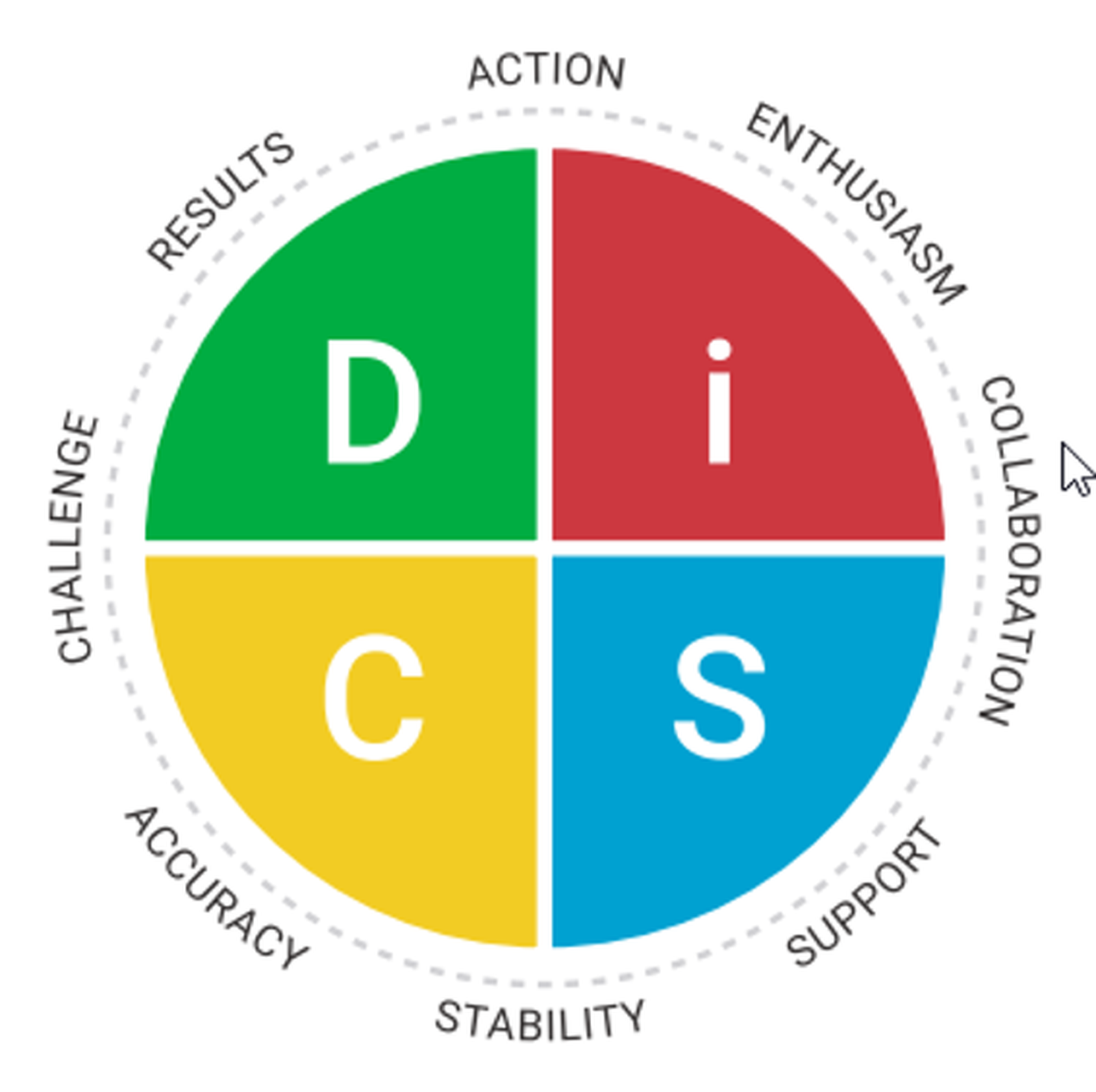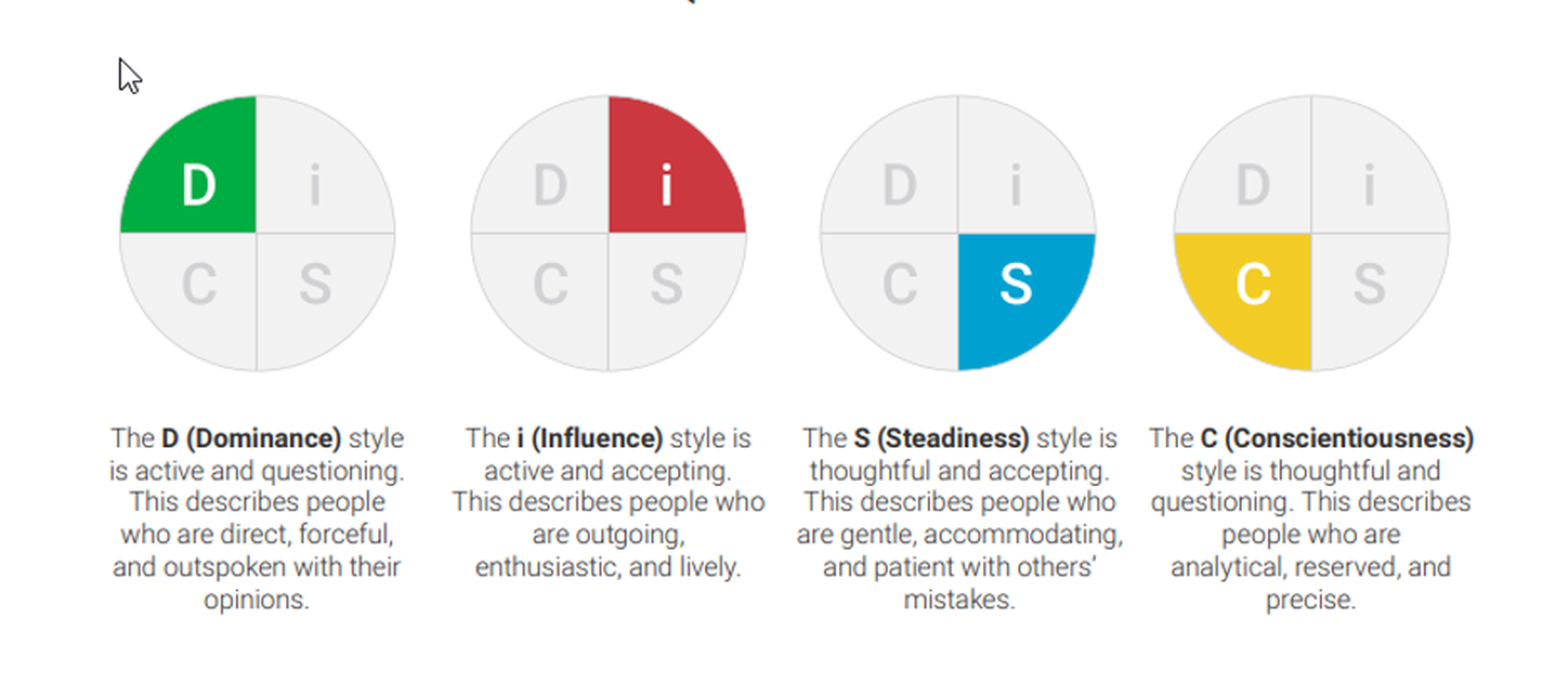How to Use DiSC Personality Tests to Empower Leaders

An experienced shepherd knows he cannot lead a flock of sheep from the front. To protect the sheep from harm, predators, or wandering off, the shepherd must lead from within—usually behind the flock.
A shepherd will motivate the sheep forward and bring them to where they should be. A pastor is a leader who, as a shepherd, leads from within the flock and not from the front—motivating and protecting their pastoral leadership team as they walk with Christ and grow into maturity.
One of the many effective tools that pastors have available to them comes from the world of psychology and has been used for over 60 years. It’s the DiSC personality assessment. The DiSC assessment was the creation of Walter Clarke, an industrial psychologist, and was based on a book written by William Moulton Marston who was the first to define the four, distinct personalities that make up the DiSC classification.
John Geier would eventually develop the Personality Profile System, called Everything DiSC, that’s in use today using the four categories of Dominant, Influential, Supportive, and Cautious.
So how can a pastor use the DiSC personality assessment to effectively lead and empower his pastoral team?
First, a pastor should take the DiSC assessment, personally, to DiSCover which leadership personality type receives the highest score.
Next, by administering the DiSC assessment to his pastoral team, the pastor will come to better understand the strengths, weaknesses, wants, needs, and values of each member. The true value of understanding the DiSC personality profiles is found in knowing how personalities work with one another. This will allow you to make adjustments and set a course of action that engages each leader’s unique strengths and abilities while helping them navigate the potential problems that will come.

Image Credit: ©EverythingDiSC.com
Maximizing DiSC assessments will strengthen your relationship with each person, and their relationships with each other.
It’s worth mentioning, again, that a good leader will complete the DiSC assessment before asking anyone else on the team to complete it. A good leader will keep in mind that, while you likely score higher in one or two categories, you will have scores in all four categories. This means that you have the ability to relate to all personality types—not just the people who are most like you.
A good leader will also keep in mind the ways that different personalities complement and conflict with their personality. Anticipating these areas will maximize the effectiveness of every interaction you have with the members of your team.
Here are the four personality types found in the Everything DiSC program and how you as a leader can effectively use them to guide and encourage your pastoral leadership team:
Photo Credit: ©GettyImages/Ridofranz

1. Dominant Personality Type
People who have a Dominant personality will display an outgoing nature. Their manner of speaking is to be direct and succinct. They are often seen as natural leaders due to their assertive, take-charge tendencies. Dominant personalities are typically task-oriented and enjoy problem-solving. Because they are focused on results, they will make decisions with the bottom-line in mind.
Pastors tend to initially enjoy people with Dominant personalities. Their ability to make decisions, get things done, and deliver results makes them very attractive to pastors who need a project or ministry leader. Their dependability and seeming lack of insecurity make them easy choices for leadership.
However, the shine of the Dominant leader will eventually begin to fade as their limitations emerge. Pastors often find their calendars filling up with appointments with people who’ve been hurt or offended by the Dominant leader. While strong and decisive, these leaders will often lack gentleness and tact. They will normally defend their matter-of-fact way of speaking by saying that they’re being “honest.” They struggle with people they see as easily-offended or weak, and will often label them as perpetual “victims.”
Dominant leaders will be mischaracterized as bullies and unloving. As a pastor, you will need to understand two very important things—they are not lacking in love and they can be wounded by the accusation of being a heartless bully.
As a pastor and leader, you will need to encourage them to humble themselves, ask for forgiveness, if necessary—which they will not enjoy—and keep going. Encourage them to look beyond the task and see the ministry...to value speaking the truth in love.
Scriptures for Dominant leaders: Ephesians 4:2, Ephesians 4:15, Micah 6:8, Proverbs 15:1
Fruit of the Spirit focus: Patience, Gentleness
Photo Credit: ©GettyImages/Nortonrsx

2. Influential Personality Type
Leaders who display the Influential personality type are also very outgoing, but instead of being task-oriented, they’re people-oriented. Instead of being focused on the bottom line, they measure success based upon how much people are enjoying themselves. Influential leaders are excellent at creating excitement and energy around an event or cause. Because of their people-focused nature, they’re usually very friendly and unafraid to meet new people.
Pastors are drawn to Influential leaders because of their energy. They’re seen as natural leaders because they can rally a group and motivate people to participate in just about anything. They are also natural performers and comfortable in front of crowds. Influential leaders are interactive and are known and liked by almost everyone, however, observant pastors will see their limitations begin to show.

Because Influential leaders are outgoing, they will struggle like Dominant leaders to look behind them and check on the “sheep.” They can easily become bored if the ministry or task they’re leading is perceived as monotonous and lacking in fun and excitement and will struggle with what they see as the mundane tasks and details of leadership.
An Influential leader will often emotionally distance themselves from people who don’t share their energy and thirst for excitement. As a pastor and leader, you will need to encourage them to remain humble and remind them of the beauty of “laboring together.” Influential leaders should be reminded to do everything as unto the Lord and with excellence. Encourage them to involve others in the ministry and to let others take the lead from time to time.
Scriptures for Influential leaders: Colossians 3:17, Colossians 3:23, Titus 2:7, 2 Corinthians 8:7
Fruit of the Spirit focus: Meekness, Self-control
Photo Credit: ©GettyImages/Fizkes

3. Steady Personality Type
A leader who demonstrates an even temper and a real motivation to help people will likely score high in the Steady category. Steady leaders, like Influential leaders, are people-oriented, however, unlike the two personality types we’ve already discussed, they are usually more reserved and will rarely show large changes in emotion. They usually focus on preserving relationships and on creating or maintaining peace and harmony. They believe that no one should be left out, and go to great lengths to include everyone, they’re excellent communicators.
Pastors come to cherish Steady leaders due to their unsinkable spirit and optimism. However, they soon find that this personality will struggle to bring pastoral correction when needed, due to a fear that it will negatively harm relationships. Often, Steady leaders will go so far as to excuse behavior that needs correction. This may lead church members with more outgoing personalities to hijack the leadership role, intentionally or unintentionally.
Also, pastors will observe that Steady leaders, like Influential leaders, will struggle with planning and repetitive tasks, not for the same reasons, though.
Pastors should coach and counsel their Steady leaders that being assertive is not the same as being unloving—that even the most loving of shepherds have to use the rod, from time to time. Come alongside a Steady leader and empower them in their authority.
Foster a relationship that does not wholly center on church or ministry business. A dinner invitation at your home will mean the world to your Steady leader.
Scriptures for Steady leaders: Deuteronomy 8:5, Proverbs 11:14, 1 Peter 5:2-4, Romans 15:5
Fruit of the Spirit focus: Love, Peace, Goodness
Photo Credit: ©Unsplash/Austin Distel

4. Conscientious Personality Type
Finally, we come to the Conscientious leader. The Conscientious personality trait is often overlooked by pastors when searching for leaders. People who have high scores in the Conscientious category are reserved and, often quiet. They’re usually not assertive and are happy to be “behind the scenes.”
Conscientious leaders are natural readers and researchers, who value facts, rules, and correctness. Conscientious leaders and Steady leaders, both, value tradition, but Conscientious leaders view their tradition as the correct way of doing things.
Unfortunately, there is a misunderstanding that Conscientious leaders are unfriendly, rude, standoffish, and arrogant. This simply isn’t the truth and, it’s imperative for pastors to continually set the record straight with those who bring criticism or complaint about the Conscientious leader.
Even though pastors may initially consider this personality type to lack strong leadership qualities, they often find their dependability and preparedness refreshing. A pastor merely has to provide their Conscientious leader with an opportunity to teach on a subject and they will find that, though the delivery may come across as dry and monotonous, the Conscientious leader will have the knowledge and research to confidently speak as a subject-matter expert.
The other side of this personality coin, however, reveals that Conscientious leaders will not readily accept the opinions of others, especially if it’s believed that the opinionated person hasn’t invested the same or greater amount of time in researching and learning. Conscientious leaders expect that those they lead will accept what is taught as fact, beyond question.
While the Conscientious leader isn’t lacking in friendships, a pastor will find that they will not develop relationships easily, as this personality trait usually has 3 to 4 close, long-term friendships that bring the leader satisfaction.
Finally, Conscientious leaders are typically risk-averse and will struggle to “step out in faith.”
Pastors should counsel their Conscientious leaders to be excited when people ask them questions or share their opinions, as this points to how well the leader is leading.
Pastors will need to remind their Conscientious leader, often, that the truth should be spoken in love. Guide the leader to make personal connections with others, as these connections are what give life to the Body of Christ.
Finally, remind your Conscientious leader to walk by faith and not by sight.
Scriptures for Conscientious leaders: Proverbs 3:5-6, Ephesians 4:15, 2 Corinthians 5:7, Romans 12:3
Fruit of the Spirit focus: Faith, Joy
All Types Strengthen the Team as Iron Sharpens Iron
While there are many parallels between pastoring a leadership team and shepherding a flock of sheep, there are similarities to managing a championship-level sports team, too.
As a coach of a sports team, you want each of your players to possess strong fundamental skills, yes—but championship trophies are won because each player brings a unique strength in their position. Pastors should strive to utilize each leader according to their God-given strengths while sharpening and improving the fundamental pastoring and teaching skills.
The perfect leadership team will include all four of the DiSC personalities and a strong pastor will cultivate an environment of mutual learning and respect.
As iron sharpens iron, so one person sharpens another. – Proverbs 27:17
Photo Credit: ©GettyImages/nd3000
Originally published September 21, 2020.









